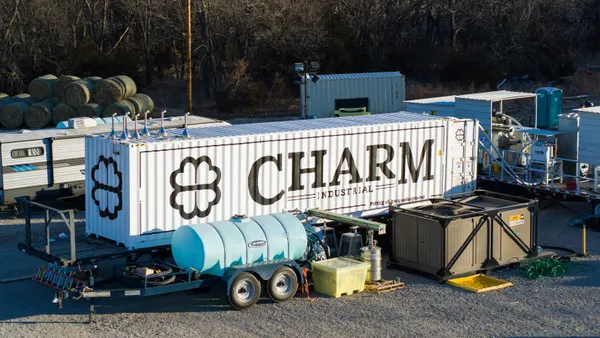Dive Brief:
- Despite major policy shifts in 2025, such as the United States pulling out of the Paris Agreement and the European Union curtailing its proposed sustainability legislation, about 73% of businesses have not changed their sustainability commitments, according to a new report from the Massachusetts Institute of Technology.
- The report found that 15% of companies surveyed decreased their commitments, but 12% increased them. However, only 39% of companies that maintained or increased goals have integrated sustainability into day-to-day decision-making. The report suggests that companies that set public sustainability goals are 74% more likely to do so and invest in high-impact initiatives.
- The greatest obstacle to measuring scope 3 emissions was reported to be supplier data availability by about 70% of respondents. The lack of standardized methodologies and the inherent complexity of calculations were also flagged by about half of respondents as additional challenges.
Dive Insight:
The report examining supply chain sustainability was released earlier this month by the MIT Center for Transportation & Logistics and the Council of Supply Chain Management Professionals. The report gathered responses from 1,203 supply chain professionals in 97 countries across 6 continents.
Companies’ continued commitment to sustainability “suggests that corporate action is being driven by forces beyond federal policy,” Sreedevi Rajagopalan, a research scientist at MIT and one of the report’s authors, told ESG Dive in an emailed statement.
But while European companies are still motivated by the EU’s Corporate Sustainability Reporting Directive, North American companies are primarily motivated by investor expectations and boardroom priorities, according to Rajagopalan.
“[North American] firms are responding to financial markets, shareholders, and reputational concerns — even without regulatory pressure,” she added.
MIT’s analysis also showed clear regional differences in approaches to supply chain sustainability. About 50% of respondents from North American companies said they still rely on spreadsheets, while only 32% of European companies do, demonstrating wider adoption of life-cycle assessment tools and custom-built solutions, per the report. And while North American companies were more likely to rely on financial data and industry averages, Europeans were more likely to collect supplier data directly. The report said that the former approach is limited because it prioritizes cost over emissions and can fail to convey the true emissions tied to purchases.
Overall, the report found that most companies attempted to reduce scope 3 emissions by setting sustainability requirements at procurement and requesting emissions data from suppliers. Commercial mechanisms, like offering long-term contracts with sustainability commitments or offering financial incentives or exacting penalties, were relatively underutilized, per the report.
Like public commitments, industry alliances also helped companies toward their sustainability goals. Eighty-seven percent of companies participating in industry collaborations to track and reduce scope 3 emissions reported concrete benefits such as stronger supplier engagement, better alignment on sustainability goals, and enhanced access to emissions data and reporting frameworks. Additionally, 64% highlighted gains from shared expertise and resources, and even direct cost savings through joint sustainability investments.
On the other hand, the survey also found that many firms are now relaxing their timelines for achieving net-zero or emission reduction targets, Rajagopalan said this might be due to operational or financial constraints, or worries about reputational risk if they don’t meet their targets.
“It reflects a growing recognition that reducing emissions is not easy, and that companies cannot tackle this challenge alone,” she said.










